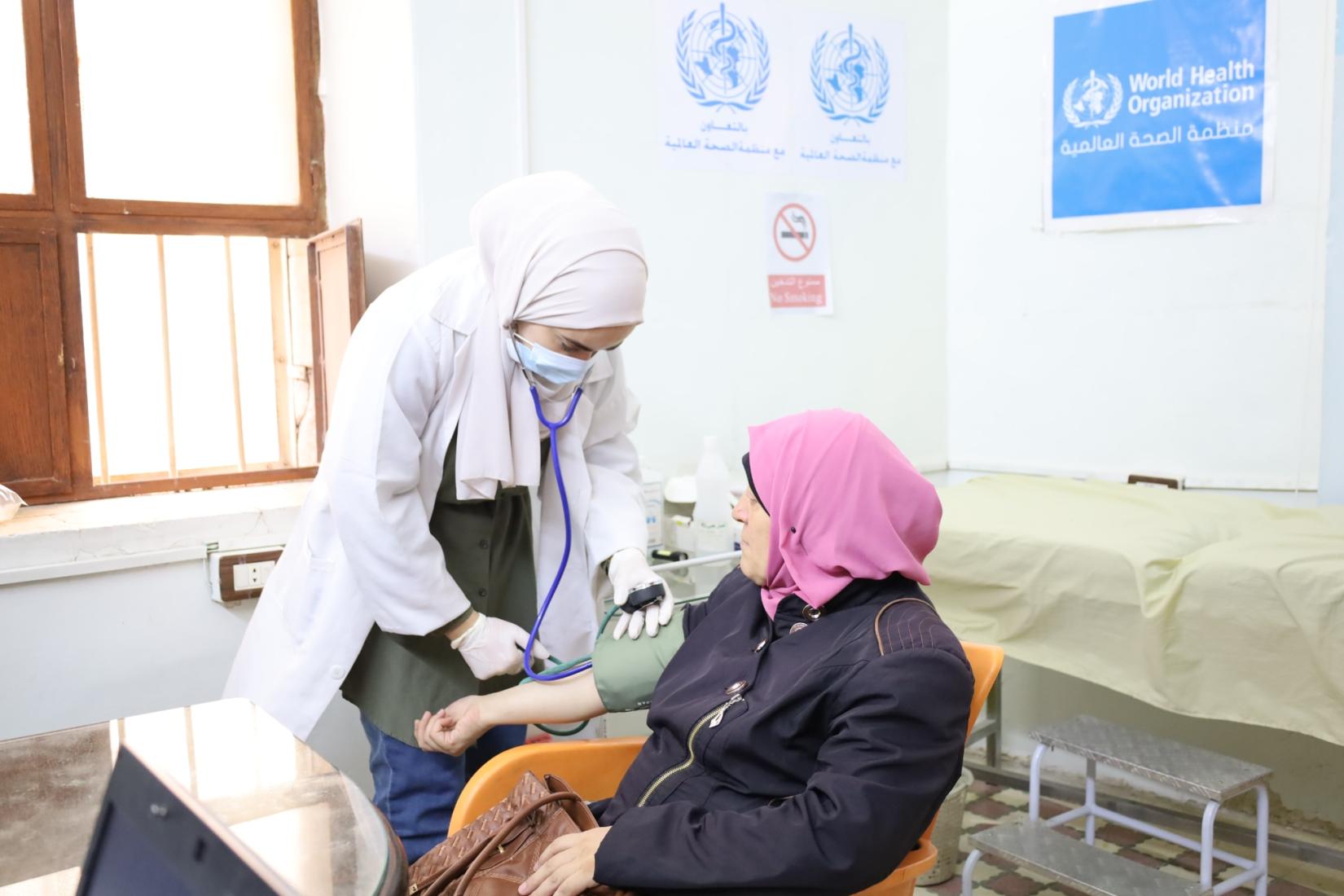Monthly Digest of the UN in Syria - January 2024
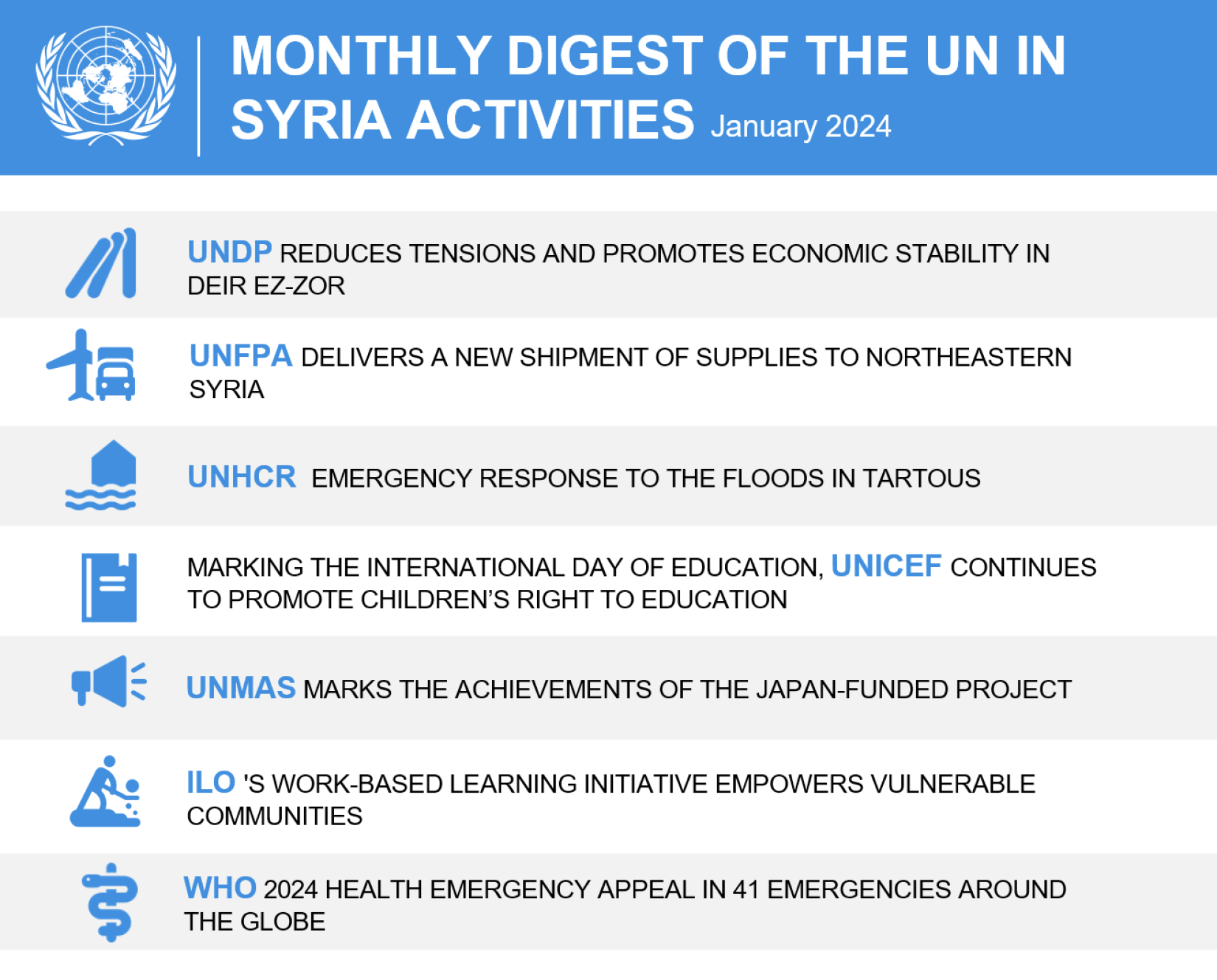
UNDP REDUCES TENSIONS AND PROMOTES ECONOMIC STABILITY IN DEIR-EZ-ZOR
UNDP’s efforts to mitigate water disputes and empower communities in Marat and Mazloum villages, Deir-Ez-Zor helped improve water management, strengthen drought resilience and gave a boost to local agriculture. Through alternative dispute resolution methods, UNDP helped communities establish fair and equitable water allocation mechanisms, paving the way for sustainable water access and a new irrigation canal, “the Kindness Canal.”
With support from the Funding Windows through UNDP, around 2,500 dunums of land will be irrigated, benefiting around 350 farmers.
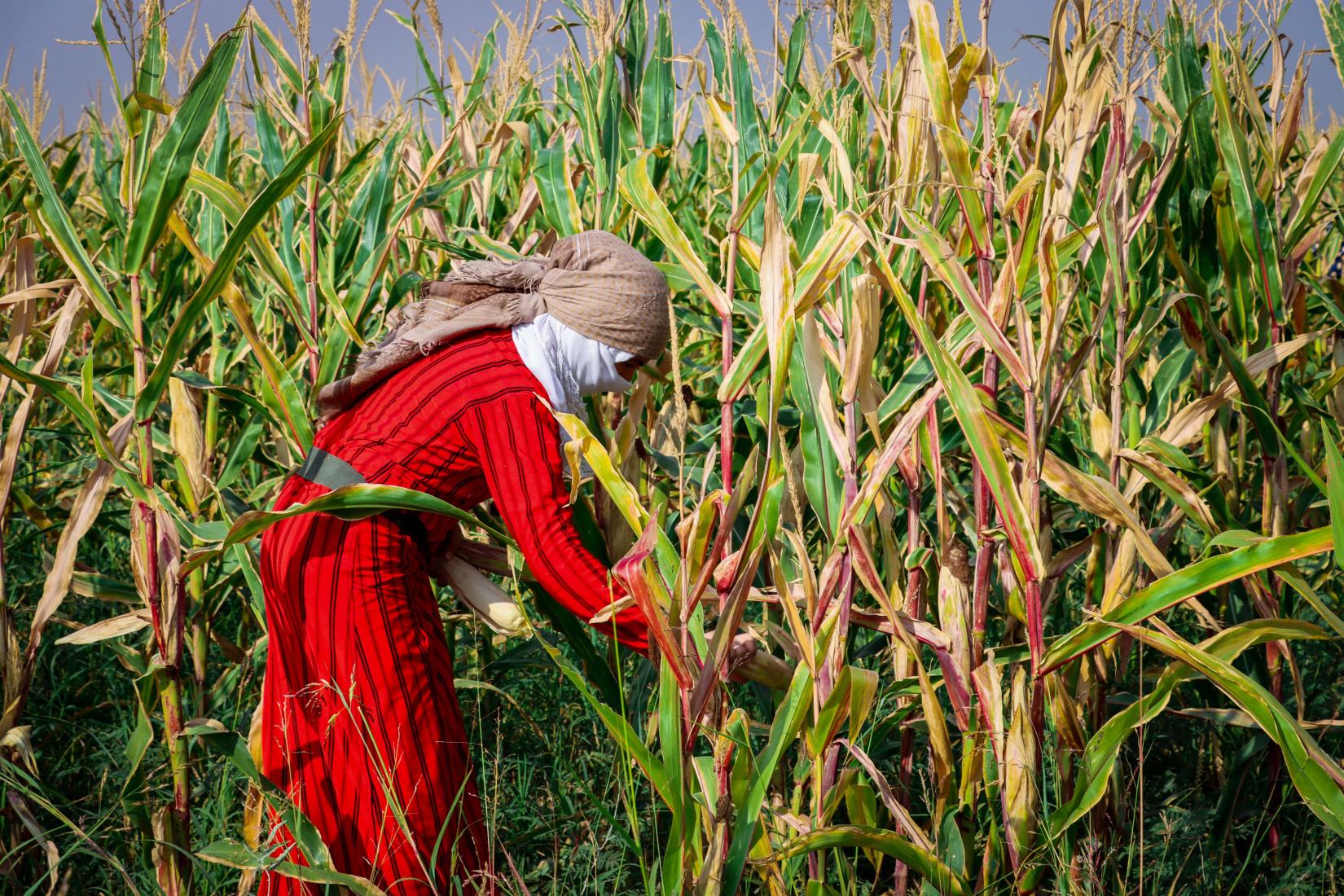
UNFPA DELIVERS A NEW SHIPMENT OF SUPPLIES TO NORTHEASTERN SYRIA
The United Nations Population Fund (UNFPA) made a significant contribution by delivering a shipment of new medicines and personal hygiene products to north-east Syria. These provisions have been distributed to local partners and civil society organizations, aiming to empower communities, improve the health of women and girls, address their essential needs and provide life-saving protection.
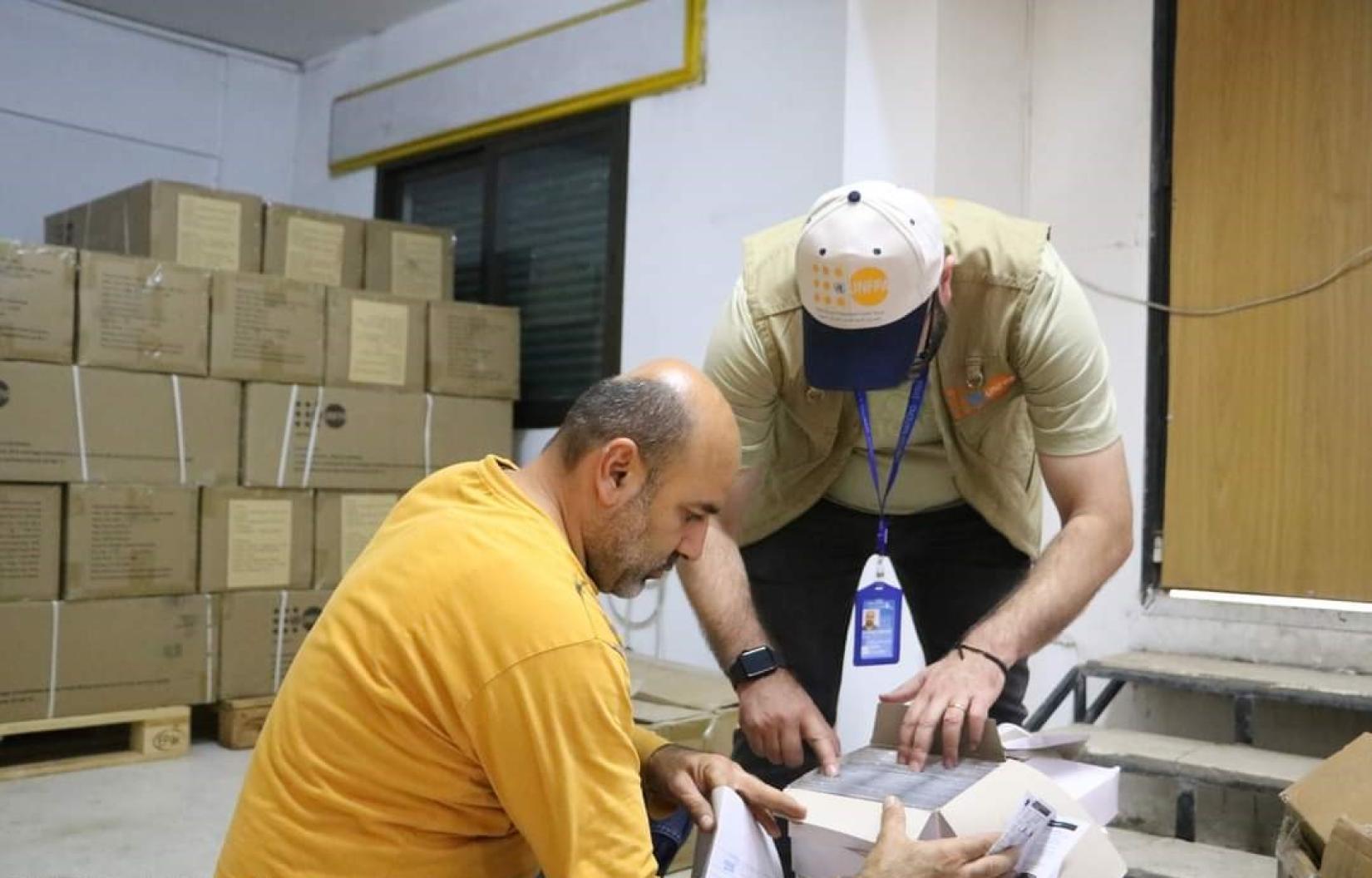
UNHCR EMERGENCY RESPONSE TO FLOODS IN TARTOUS
A devastating flood hit Tartous due to heavy rainfall, leaving over 100 families in need of urgent assistance. UNHCR and its partners swiftly responded, providing essential relief items to those affected. The flood's impact extended beyond communities, causing extensive damage to agricultural lands in the Akkar Plain, a crucial source of food for Syria.
The flood's onslaught inundated homes, roads and farmlands, leaving a trail of devastation in its wake.
https://twitter.com/UNHCRinSYRIA/status/1747972662423409114
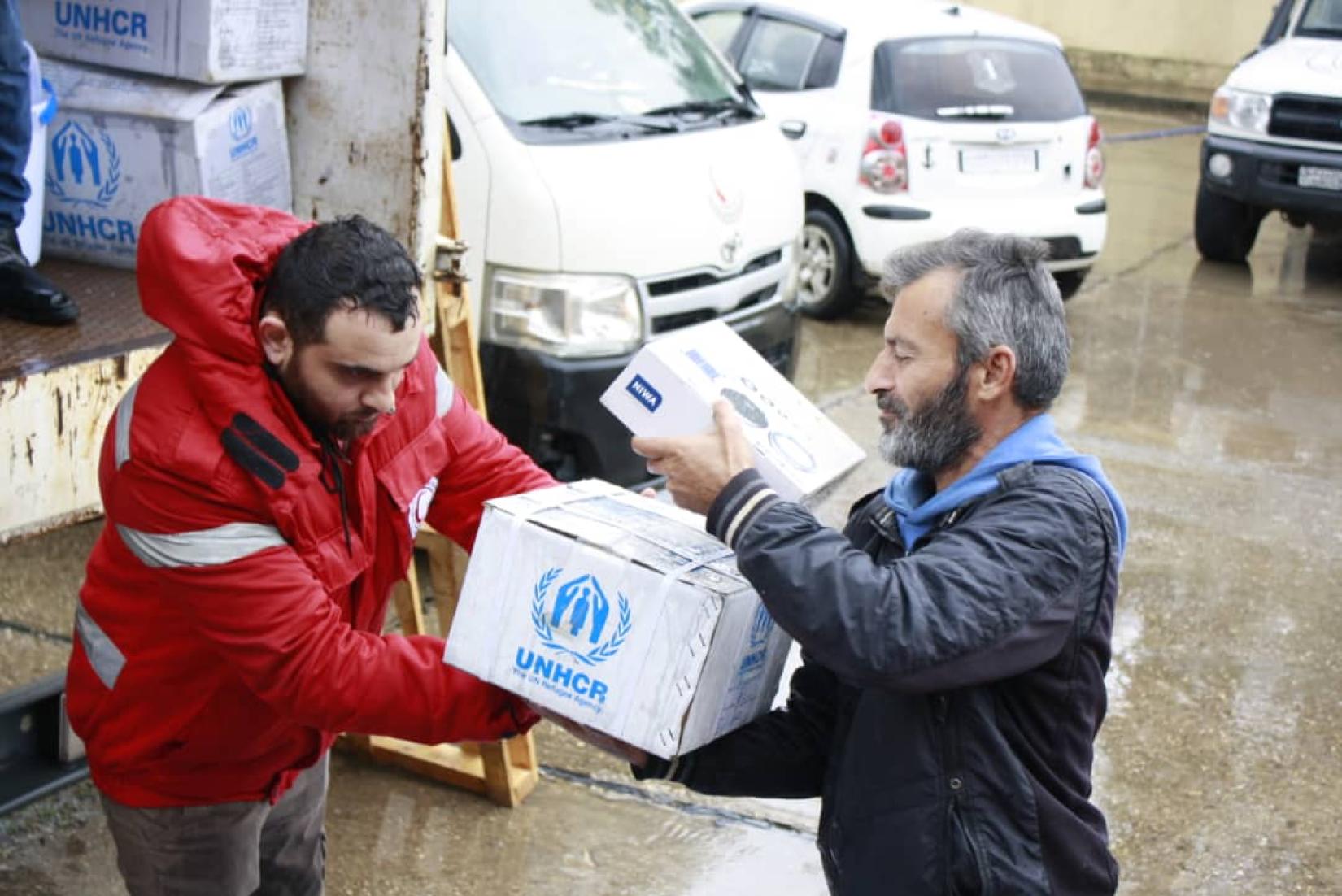
MARKING THE INTERNATIONAL DAY OF EDUCATION, UNICEF CONTINUES TO PROMOTE CHILDREN’S RIGHT TO EDUCATION
As we commemorate the International Day of Education on 24 January, UNICEF reaffirms its commitment to upholding the right to education for every child.
Almost 13 years of conflict in Syria, nearly half of school-aged children are deprived of education and a third of the country's schools lie in ruins. Children are not only missing out on the transformative power of education, but also the opportunity to build a brighter future for themselves. Education is a fundamental human right and a cornerstone of a just and equitable society.
UNICEF, working alongside partners, remains steadfast in its dedication to supporting children's learning through various initiatives, including the rehabilitation of schools, remedial classes, digital learning platforms, and accelerated or condensed learning programmes.
https://twitter.com/UNICEFinSyria/status/1749364045520462196?s=20
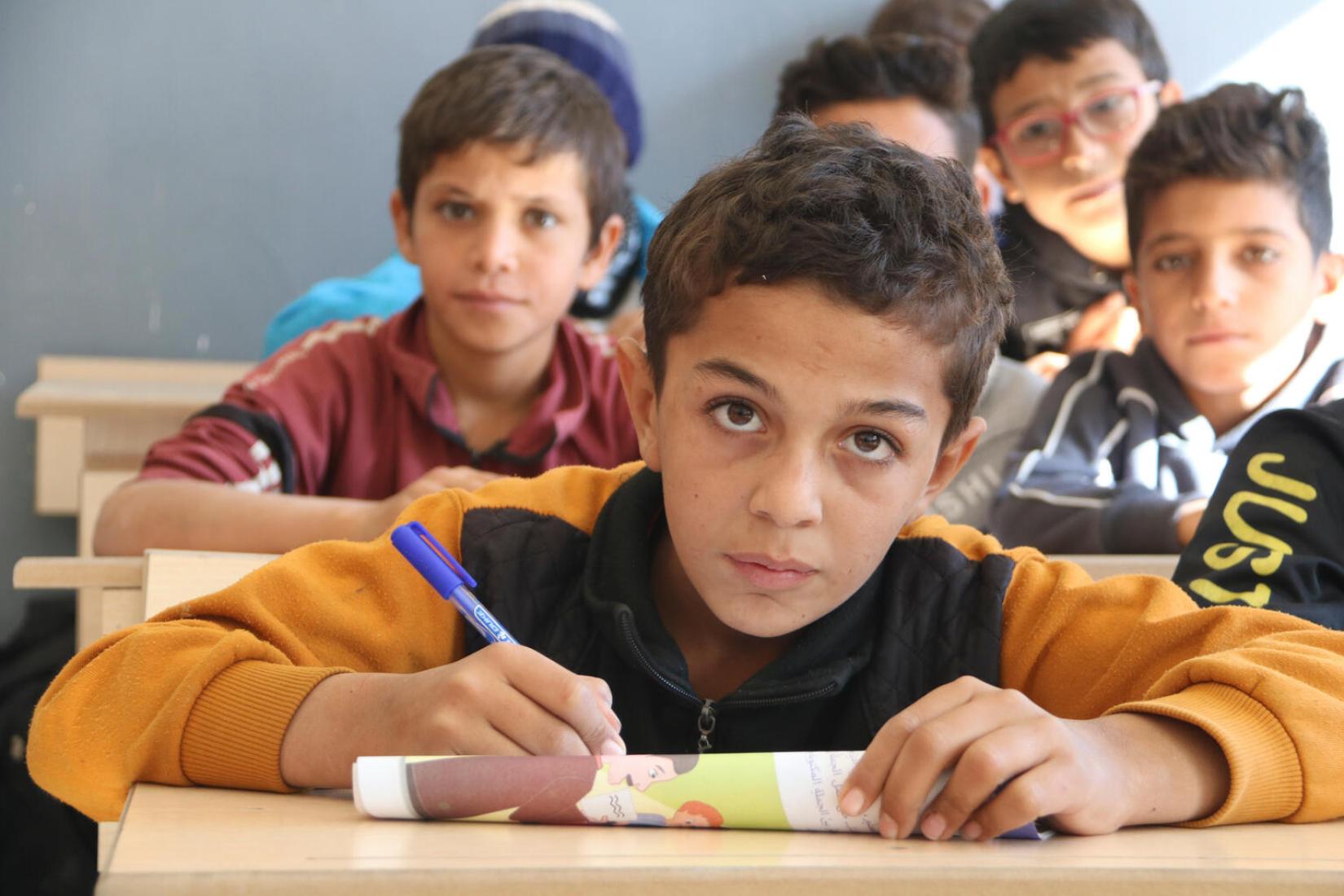
SYRIA MINE ACTION PROGRAMMEME MARKS ACHIEVEMENTS OF JAPAN-FUNDED PROJECT
UNMAS completed its impactful Education on Explosive Ordnance Risk Education and Victim Assistance (EORE-VA) project in rural Damascus, backed by the generous support of the Government of Japan. This project reached 42,000 beneficiaries through targeted EORE sessions, arming them with the knowledge and skills to navigate the dangers of explosive ordnance contamination within their communities.
ILO'S WORK-BASED LEARNING INITIATIVE EMPOWERS VULNERABLE COMMUNITIES
The International Labour Organization (ILO) recently concluded its work-based learning programme, which aimed to empower vulnerable communities affected by earthquakes. This initiative seamlessly integrated hands-on job training with the real-world demands of the labour market, equipping participants with the essential skills necessary for long-term employment.
https://x.com/ilo_syria/status/1752017648072761697?s=20
WHO 2024 HEALTH EMERGENCY APPEAL IN 41 EMERGENCIES AROUND THE GLOBE
The World Health Organization (WHO) has launched its 2024 Humanitarian Health Appeal, seeking to provide vital healthcare to over 87 million people worldwide, including nearly 15 million people in need of assistance in Syria. This appeal comes in response to the escalating humanitarian crisis, exacerbated by conflict, climate change and economic instability.
WHO’s appeal focuses on providing life-saving healthcare, including essential medical supplies and equipment, as well as maintaining essential health services to ensure continuous care for those affected by these crises.
The funding requested for Syria will prioritize direct access to healthcare for communities in hard-to-reach areas, in collaboration with local organizations. It will also aim to strengthen outbreak prevention and response capabilities and invest in critical infrastructure and capacity-building initiatives to enhance the resilience of Syria’s healthcare system in the face of future threats.
